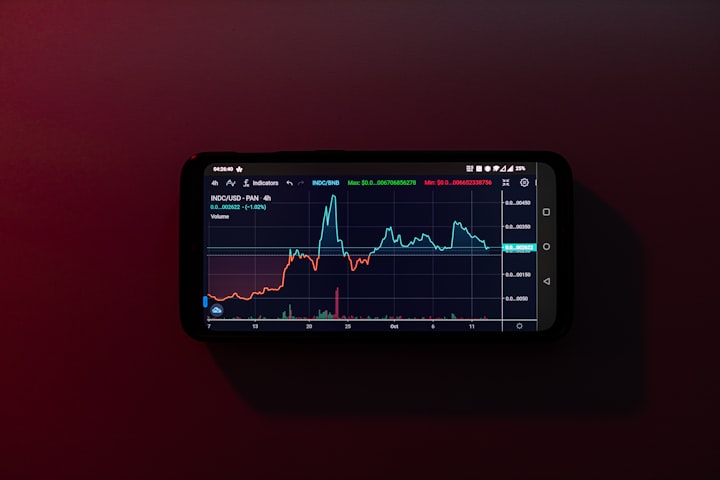The industry of banking has been around for a long time, but it’s now undergoing a massive transformation thanks to blockchain technology. It is changing how business is done in countless ways, but one of the most significant impacts is that it will make transactions more transparent and secure than ever before. In addition, many experts believe blockchain could prevent fraud in financial transactions — from credit cards to digital currencies. This article will discuss ways the banking industry is changing by implementing blockchain technology.
1. Payment Processing
Blockchain payment processing is a crucial area for the growth of blockchain technology. The technology is faster and more secure than traditional payment processing, making it an attractive option for the banking industry. It’s also more transparent and secure, which means you can have more confidence in your bank’s ability to keep your money safe. Finally, blockchain payment processing is more efficient than traditional payment processing methods. So when you use it to make purchases or send money worldwide, you only pay a fraction of what it would cost with another way like SWIFT or ACH.
2. Decentralized Verification
Decentralized verification is a way to confirm that transactions are legitimate. It uses cryptography and consensus mechanisms to ensure that no one person can manipulate the integrity of the information in the blockchain. For a transaction to be valid, several computers on the network must agree that it is accurate before adding it to their current block. This prevents hackers from tampering with anything stored in the blockchain since any changes require recalculating all subsequent blocks and then reaching a consensus again. This might take hours or even days, depending on how much computing power works against you.
3. Enhanced Security
The blockchain is a decentralized system, so there is no single point of failure. If a user loses their private key or if someone else gets access to it, they still have the option of revoking access to just that single key. This is impossible with traditional banking systems where everything relies on one central account and one primary password. In addition to enhanced security, this also reduces the risk for banks because they don’t need to be responsible for storing all of your assets in their safekeeping — you do!
In summary, since cryptocurrencies are based on a decentralized network rather than having an owner or administrator who can control them (i.e., hack into), the blockchain offers excellent protection against fraud and financial crimes occurring within the system.
4. Transparent Transactions
You can’t make transactions on the blockchain without recording them in a public ledger. That means every transaction is transparent and immutable, which is why it appeals to banks and other financial institutions.
Traditionally, bank transfers are recorded on private ledgers that the banks themselves control. But when you use blockchain technology, there’s no delay in getting the money into your account — and everyone can see how much money was transferred and to whom.
5. Smart Contracts
Smart contracts are computer programs that execute automatically when certain conditions are met. These contracts are self-executing, immutable, and transparent. As the name suggests, smart contracts help to automate the business processes between two or more parties by enforcing the contractual clauses specified therein. Smart contracts are executed based on the rules coded into them, which can be coded in an open source programming language like Java or C++.
The transactions processed via a blockchain network can be traced back to their originator since they cannot be modified without invalidating their signature. So any modifications such as editing data on the chain would be caught immediately by others using it and those who first created them!
Smart contract technology has many applications in various industries, including finance, where it was first used for real estate transactions via Ethereum’s “Ether” cryptocurrency (ETH).
6. Data Storage
When it comes to data storage, the main objective is to store and distribute the data in a decentralized manner. Blockchain technology facilitates this by storing the data in blocks spread across the network. This way, the information cannot be tampered with or accessed without proper authorization.
As long as miners verify your transaction through consensus protocols, you can keep your transactions for eternity by storing them on this decentralized ledger. Furthermore, you can securely share this information with anyone who wants access to it (including within an organization), ensuring that every party has access to all of its records at any time and from any place they want.
7. Fundraising
While blockchain has many uses and applications, it’s beneficial when it comes to fundraising. The technology can be used for everything from managing and tracking funds to limiting the number of times funds can be withdrawn.
Blockchain allows you to track the flow of funds as they move through each stage of your organization. This means that you know exactly where every dollar is being spent in real-time — and whether or not any suspicious activity is occurring. This makes blockchain an invaluable tool for keeping tabs on how charities or non-profits across the globe are using donations.
8. Trade Finance
Trade finance is a significant part of the banking industry, with more than $3T in trade happening each year. Blockchain can track shipments, inventory, and payments through the supply chain, ensuring that everyone involved in this process is paid as soon as goods are delivered or services rendered.
Blockchain also benefits customers by allowing them to see where their food comes from and how it was transported — a win for safety standards while promoting transparency and trust between consumer companies and their suppliers. The same goes for other products like diamonds or coffee beans which often have shady histories regarding the origins of these products or how they were processed before reaching consumers’ hands.
9. Hedge Funds
The use of blockchain technology in hedge funds is growing. Hedge funds are actively looking for ways to cut costs and reduce friction. In addition, from the investors’ perspective, they want to see their investments succeed and transparency in how that happens. These two trends are forcing hedge funds to find solutions that can provide a secure and effective solution while not compromising the privacy of all parties involved.
The advantages of using blockchain technology for hedge funds are clear: it removes third parties from the equation, thus reducing costs and increasing security; it provides a transparent way for investors to track their investments; and it offers anonymity and decentralization, two assets that will become increasingly important as regulation around cryptocurrencies becomes more stringent.

Conclusion
I hope that this article post has provided you with an idea of how the banking system is being transformed by blockchain technology. I have seen that blockchain technology is already changing the way banks do business, and many more innovations will come. The coming years will be exciting times for banking.
Originally published on Medium: https://learn.block6.tech/blockchain-technology-in-banking-finance-9-use-cases-ed8b52a2facc
You may also like:
About the Creator
Hassan
I'm a data scientist by day and a writer by night, so you'll often find me writing about Analytics. But lately, I've been branching into other topics. I hope you enjoy reading my articles as much as I enjoy writing them.







Comments
Hassan is not accepting comments at the moment
Want to show your support? Send them a one-off tip.